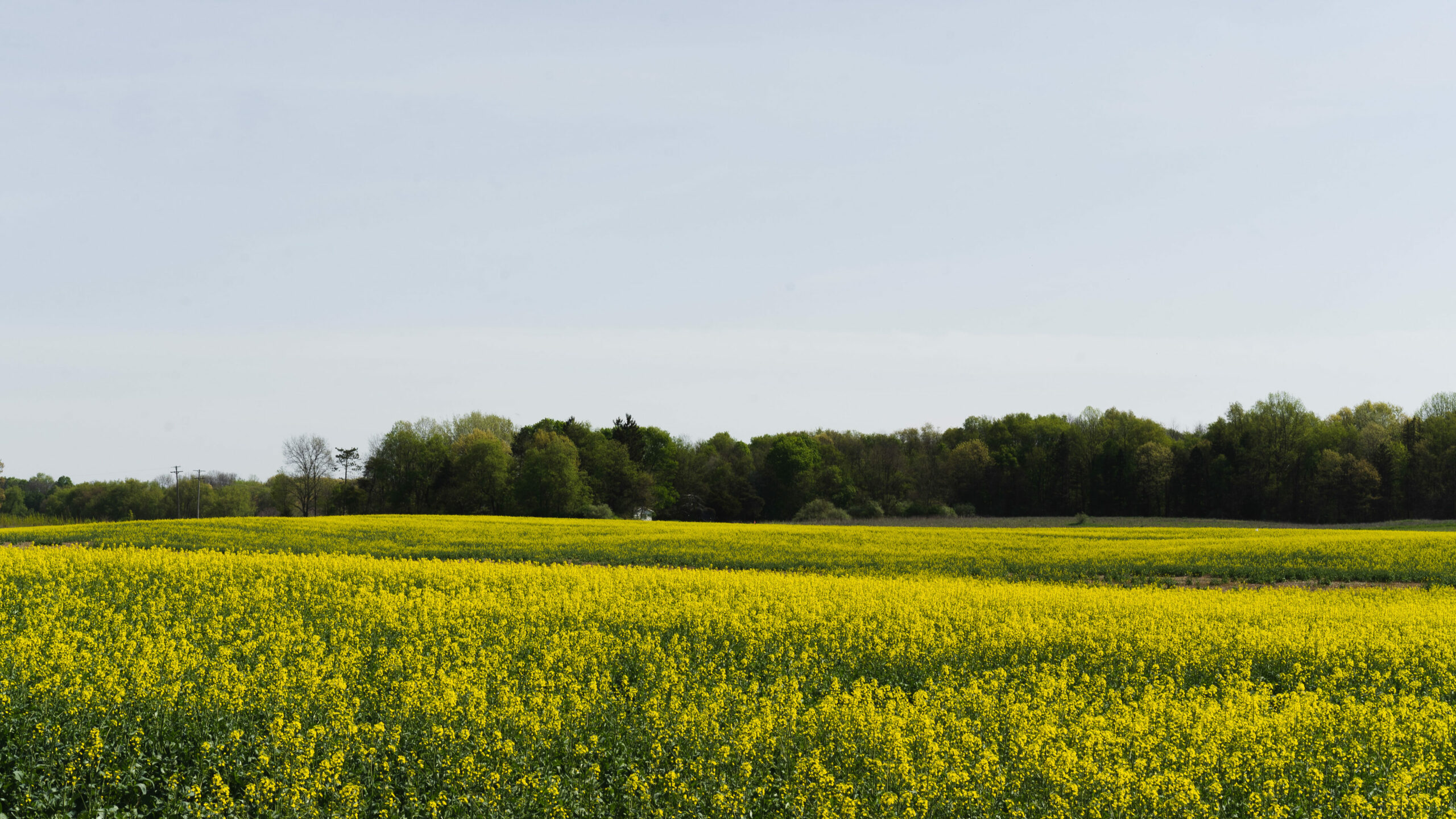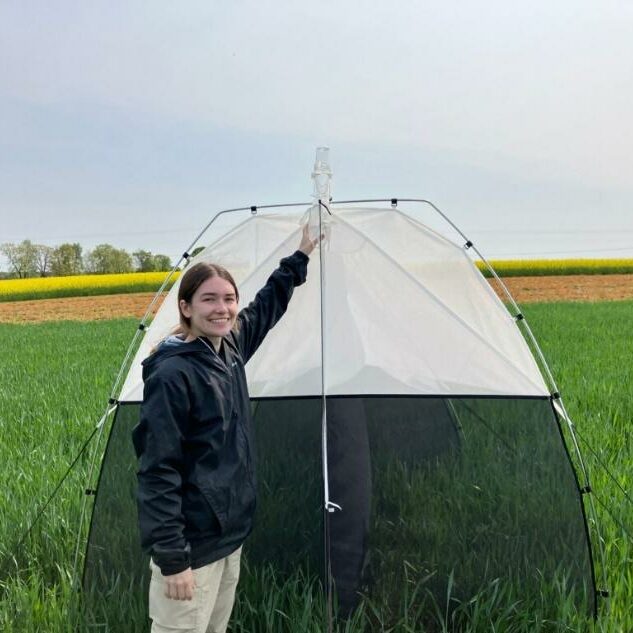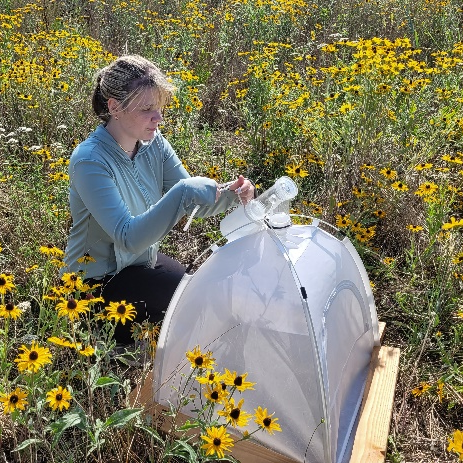
This post is part of the LTER’s Short Stories About Long-Term Research (SSALTER) Blog, a graduate student driven blog about research, life in the field, and more. For more information, including submission guidelines, see lternet.edu/SSALTER
by DeShae Dillard, graduate student at the KBS LTER
These tiny creatures are everywhere we turn, yet rarely do we pause to acknowledge their key role in our lives. If we take a moment to peek beneath their pesky surface, we discover a fascinating animal with intricate ties to functioning ecosystems.
What do flies do?

Credit: DeShae Dillard, CC BY-SA 4.0.

Credit: DeShae Dillard, CC BY-SA 4.0.
Flies are unassuming insects abundant in nearly every ecosystem on the planet, yet many scientists continue to disregard them. There are hundreds of thousands of species that remain to be discovered and the ones we have described are difficult to identify.
Although flies lack the charisma of bees or other popular insect species, they are the unsung heroes of ecology. Flies are critical to many ecosystem services we depend on, including pollination, pest suppression, and decomposition. The evolution of flowering plants into the staple crops we now cultivate would have been impossible without the assistance of flies. Moreover, their absence would lead to an accumulation of decaying animals and waste in both natural and urban spaces. Birds and other insect-feeding animals would be jeopardized without stable populations of flies in the landscape to feed on. Whether we appreciate their beauty and function or strive to rid our house of them, flies offer tremendous value to our lives.
Save the bees flies!
Humans have transformed nature in the pursuit of increasing food production for an expanding global population. Unfortunately, we pursue this goal at the cost of destabilizing ecosystems and insects are now declining at an unprecedented rate. Nature will never return to what it was before the creation of agriculture, nor should that be expected if we strive for a society with equal access to a safe and nutritious diet. As stewards of the natural world dependent on the environment to meet our needs, we must not only understand but also mitigate the negative consequences of agriculture on insects.

Credit: Ruben Ulbrich, CC BY-SA 4.0.
Despite the decline of flies and their significant role in maintaining natural systems, they go unnoticed relative to other insects. Recent attention in the media has disproportionately focused on bees because of their recognizable impact on pollination at the risk of ignoring other groups entirely. Increased funding and support for bee conservation is important in the overall recognition of insects as an important contributor to human well-being, but does little to benefit insects that are not reliant on pollinator habitat. Some bee initiatives certainly benefit flies; however, flies are incredibly diverse and require a greater breadth of resources and habitat than what is being prioritized for bees.
Designing agriculture to support flies

Credit: DeShae Dillard, CC BY-SA 4.0.
Support for the conservation and restoration of non-crop habitat, as well as the integration of sustainable agricultural management practices, has never been greater. Although often viewed as mutually exclusive, agricultural landscapes can support both food production and ecosystems. Functioning ecosystems enhance food production through ecosystem services, and flies are critical to the provision of pollination, pest predation, decomposition, and prey availability, among other services. My research will help us understand where efforts in agriculture should be prioritized and clarify which can be implemented without compromising food production.

DeShae Dillard is a PhD Student in the Department of Entomology at Michigan State University and a collaborator at the Kellogg Biological Station LTER. His research focuses on the impact of agricultural management and conservation practices on fly diversity and ecosystem services. More information about his research can be found at www.linkedin.com/in/deshae-dillard.










